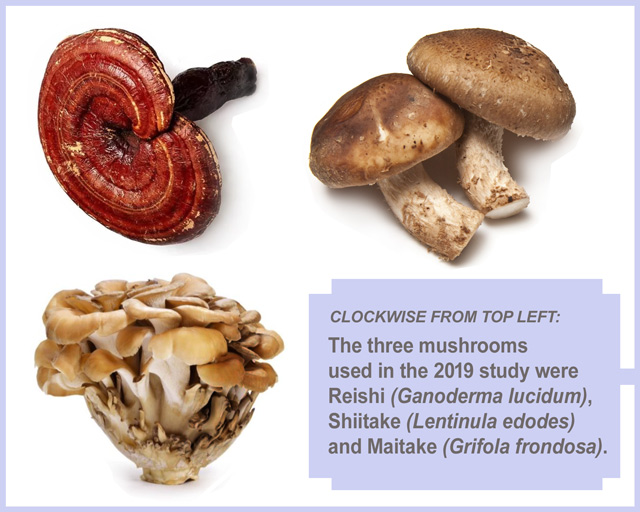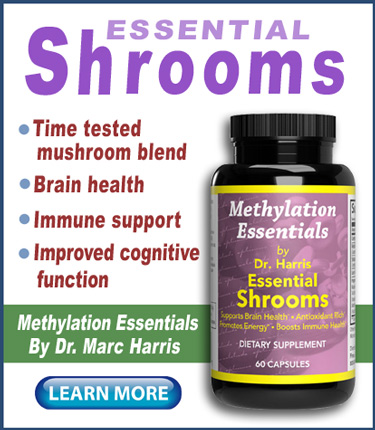If you don’t like mushrooms you’re probably aware that you’re missing out on a substantial health benefit.
But, according to research, even the people who do consume mushrooms are most likely not receiving the full potential of the health benefits mushrooms offer. That’s because most people are limited to the one or two kinds of mushrooms found in a typical grocery store, while the greatest benefits are found from the synergy of simultaneously consuming several kinds of mushrooms together.
A 2019 study published in PLOS ONE determined that a formula comprised of three mushroom varieties provided a greater immune boost compared to consuming any of the mushrooms individually.
Study details
A research team from Integria Healthcare and Griffith University analysed nine commercially available preparations from three mushroom species: Reishi (Ganoderma lucidum), Shiitake (Lentinula edodes) and Maitake (Grifola frondosa).
Each formula was analyzed for beta-glucan and alpha-glucan content, and based on this, three extracts were selected to combine into a formula. (Beta glucan is a soluble fiber found naturally in the cell walls of fungi, yeast and cereal grains, and has been linked to a number of health benefits.)
The research team then evaluated the ability of each individual extract, and the formula as a whole, relative to their impact on immune response. They did this by measuring the expression of certain cytokines (small proteins excreted by immune cells important in cell signalling) in human macrophages (a type of white blood cell).
Study results
Each of the mushroom extracts were found to be highly potent immuno-stimulators; however, the extract blend was superior.
“A synergistic formula with a specific ratio of Maitake, Reishi and Shiitake mushroom extracts provides an increase in immune stimulation compared to the additive effect of the three individual extracts,” wrote Joe Tiralongo, lead researcher and associate professor at Griffith University’s Institute for Glycomics.
Why are mushrooms so beneficial?
Researchers noted that a key characteristic of mushroom polysaccharides (polymers of sugar) that elicit an immune modulating response is that they are rich in beta-glucans and low in alpha-glucans.
The beta-glucans in mushrooms are not synthesized by humans so are said to be recognized by the immune system as “non-self molecules” which induces immune responses. These immune responses provide protection from attack by pathogenic microbes as well as environmental toxins and carcinogens—and this is why researchers believe a variety, or blend, will “amp up” the level of protection.
Mushrooms are also a rich source of protein, antioxidants, fiber, minerals and vitamins. Though there is variation between varieties, mushrooms typically provide vitamins B1, B2, B3 (niacin), B12, C and D—all important nutrients for supporting the immune system. Shiitake mushrooms, at the present time, are known to contain the most Vitamin D of any plant food.
Supplementing desperately needed in the U.S.
The per capita consumption of mushrooms in the U.S. is only three pounds per year; moreover, about 80% of that consumption is from the single genus that includes the white button mushroom.
So, Americans are not only short on overall consumption, but also on diversity.
If you would like to receive the health benefits conveyed by regular and diverse consumption of mushrooms, consider supplementing with Essential Shrooms by Dr. Harris.
Visit the Optimal Health Systems product info page, or click the sidebar banner ad, to learn more.
– – –
Sources: PLOS ONE (Plos.org), Griffith University, Wikipedia (mushrooms-general).


